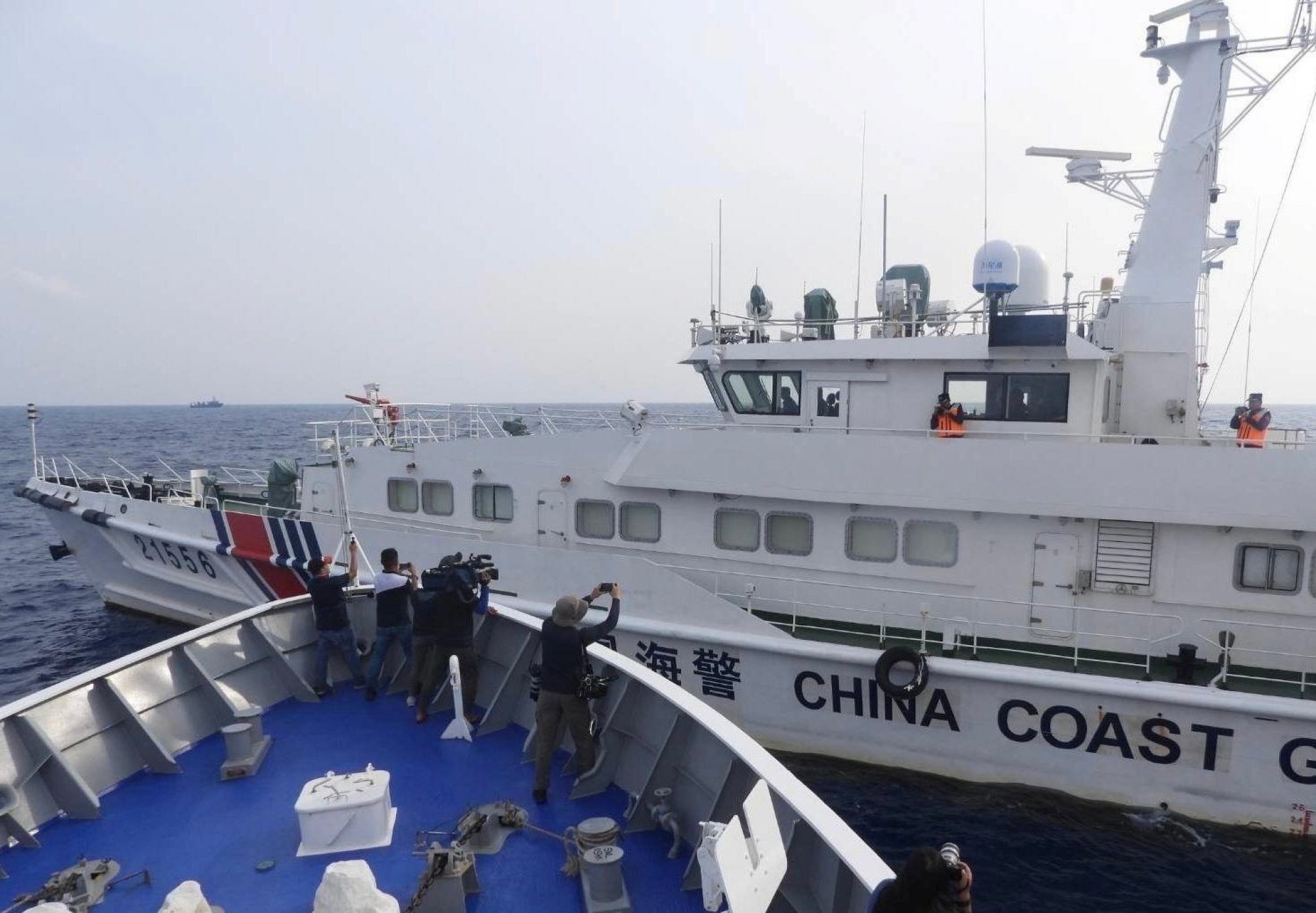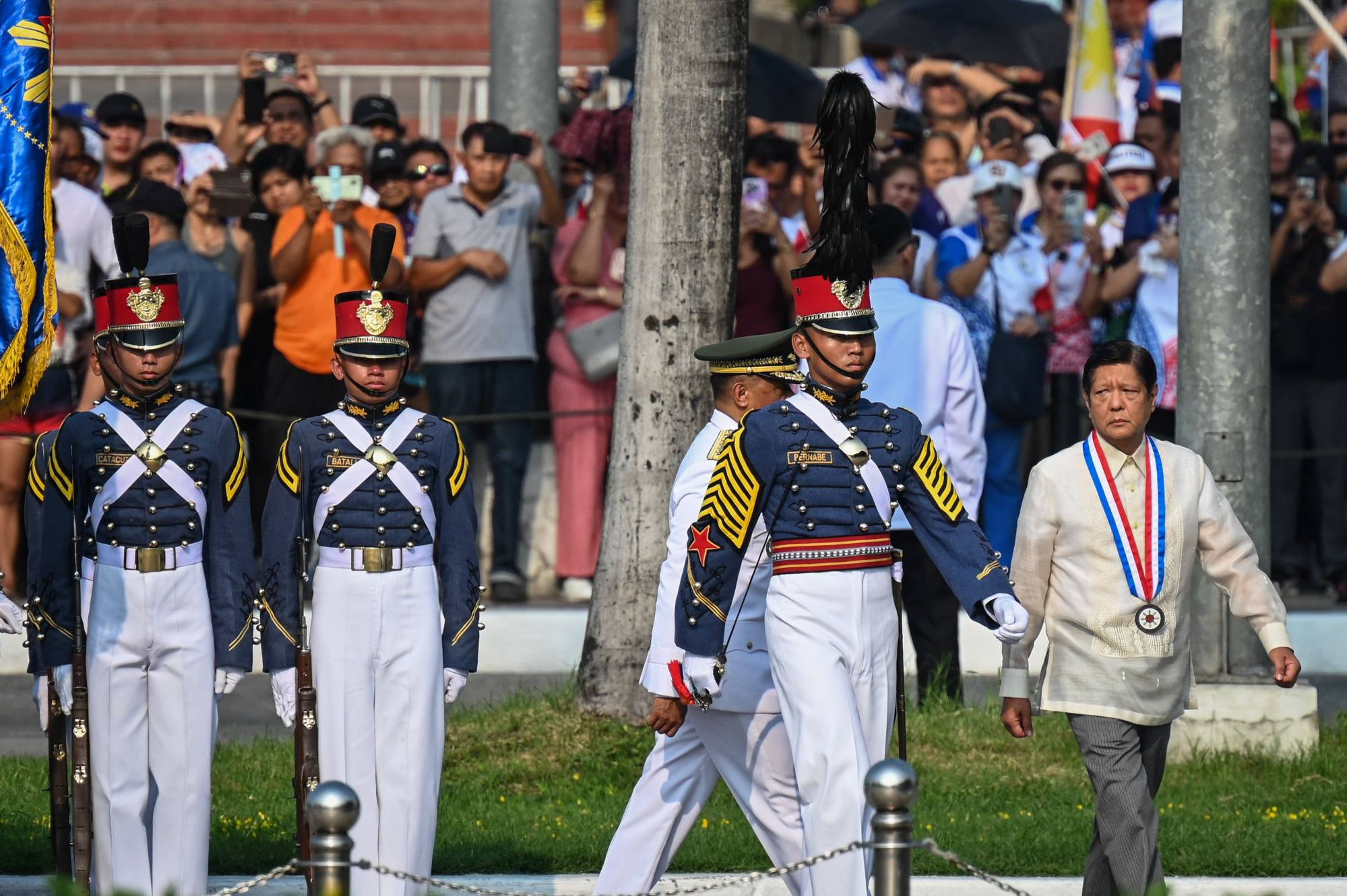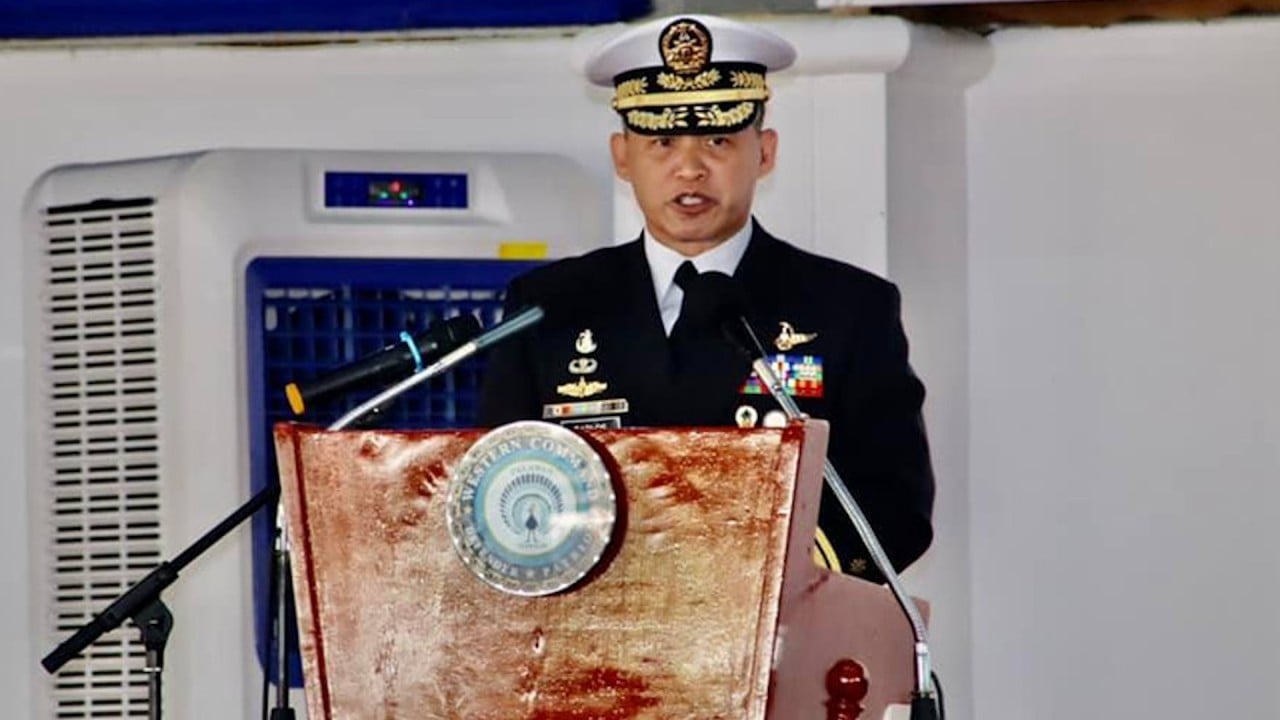
Manila sees more Chinese vessels ahead of Beijing’s maritime arrest policy
- Chinese aggression in the region could escalate into armed conflict as Beijing continues to push a strategy to provoke other nations to be ‘first to fire’
Analysts warn China’s aggressive moves in the region, including its detention policy, could escalate into armed conflict as Beijing continues to push a strategy designed to provoke other nations “to be the first to fire”.
Philippine navy spokesman Commodore Roy Vincent Trinidad said on Tuesday that 146 Chinese vessels, including 22 warships, were detected this week in the West Philippine Sea – Manila’s term for the part of the South China Sea that falls within the Philippines’ exclusive economic zone. This was up from 125 vessels last week.

Ahead of the start of the detention policy, Trinidad said the navy had stepped patrols in the area and were coordinating with their security partners.
Marcos Jnr’s warning was a “call to readiness to any eventuality”, including armed conflict, said political analyst Edmund Tayao, president and CEO of think tank the Political Economic Elemental Researchers and Strategists.
“It is also a call to commitment and, for those who are not inclined to commit,” said Tayao, who is also a professor at the Manila-based Graduate School of Law of San Beda University.
“[Beijing’s actions] are a statement of vigorous aggressiveness that simply has to be tempered by today’s international atmosphere of non-violence. China will continue to do what it has always been doing, which is designed to induce their counterpart to be the first to fire.”
Security analyst Chester Cabalza, president of the Manila-based International Development and Security Cooperation think tank, said Beijing would recalculate its position the day it implements its trespassing regulation.
“If the voice of Manila and the international community contradict and resist its stringent enforcement, China may become more flexible in its enforcement or totally withdraw from it,” Cabalza said.
“China will temper its actions so as not to start a shooting war or confrontation. This is still part of China’s grey zone tactics.”
“The external threat has become more pronounced, more worrisome. And that is why we have to prepare.”

Beijing sees Taiwan as part of mainland China to be reunited by force if necessary. Most countries, including the US, do not recognise Taiwan as an independent state, but Washington is opposed to any attempt to take the self-governed island by force and is committed to supplying it with weapons.
China has refused to accept the verdict.
The Philippines and US have an agreement that calls on both countries to aid each other in times of aggression by an external power. The Pentagon has previously said it was prepared to assist Manila if the Philippines invoked the treaty.

